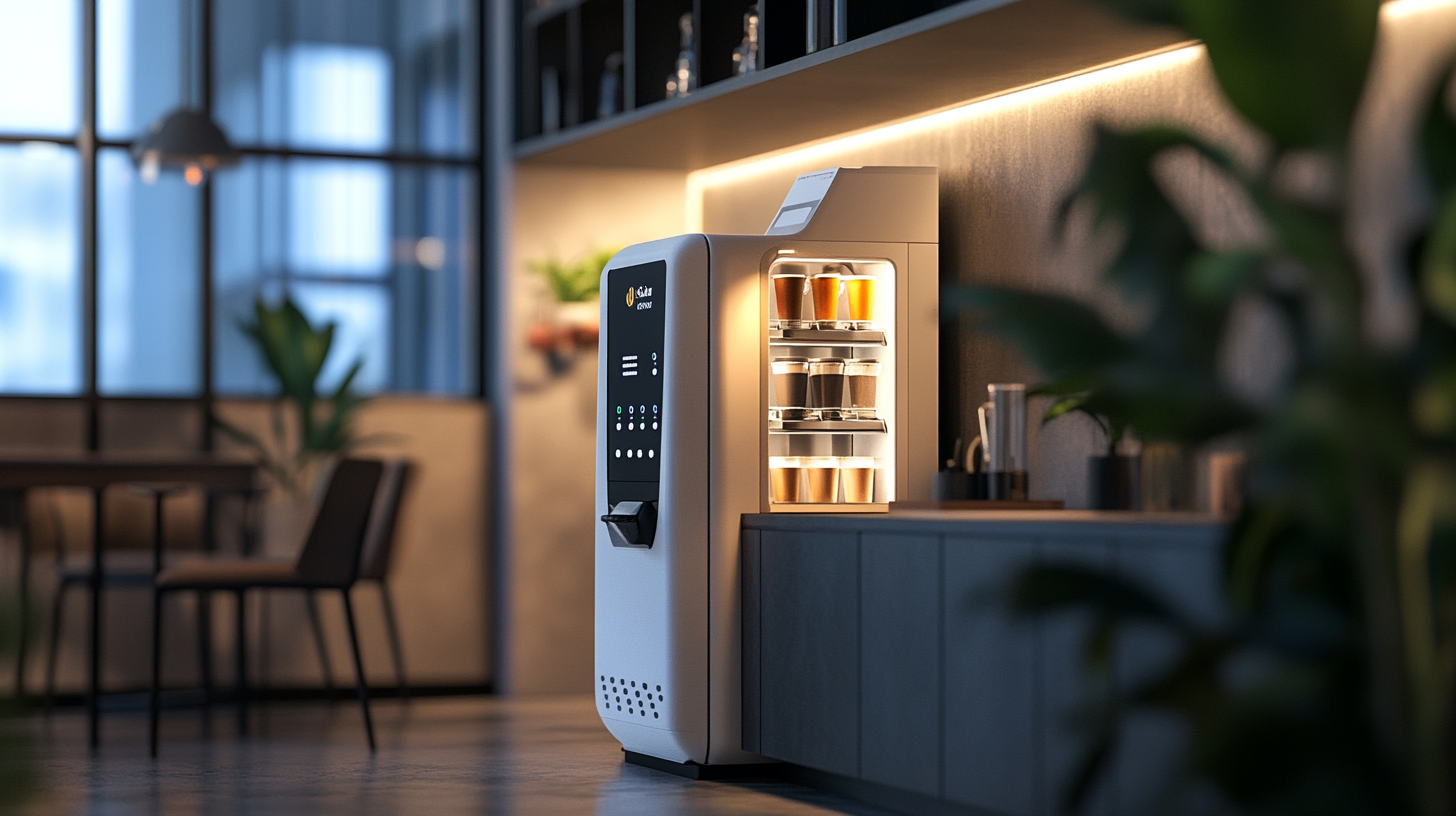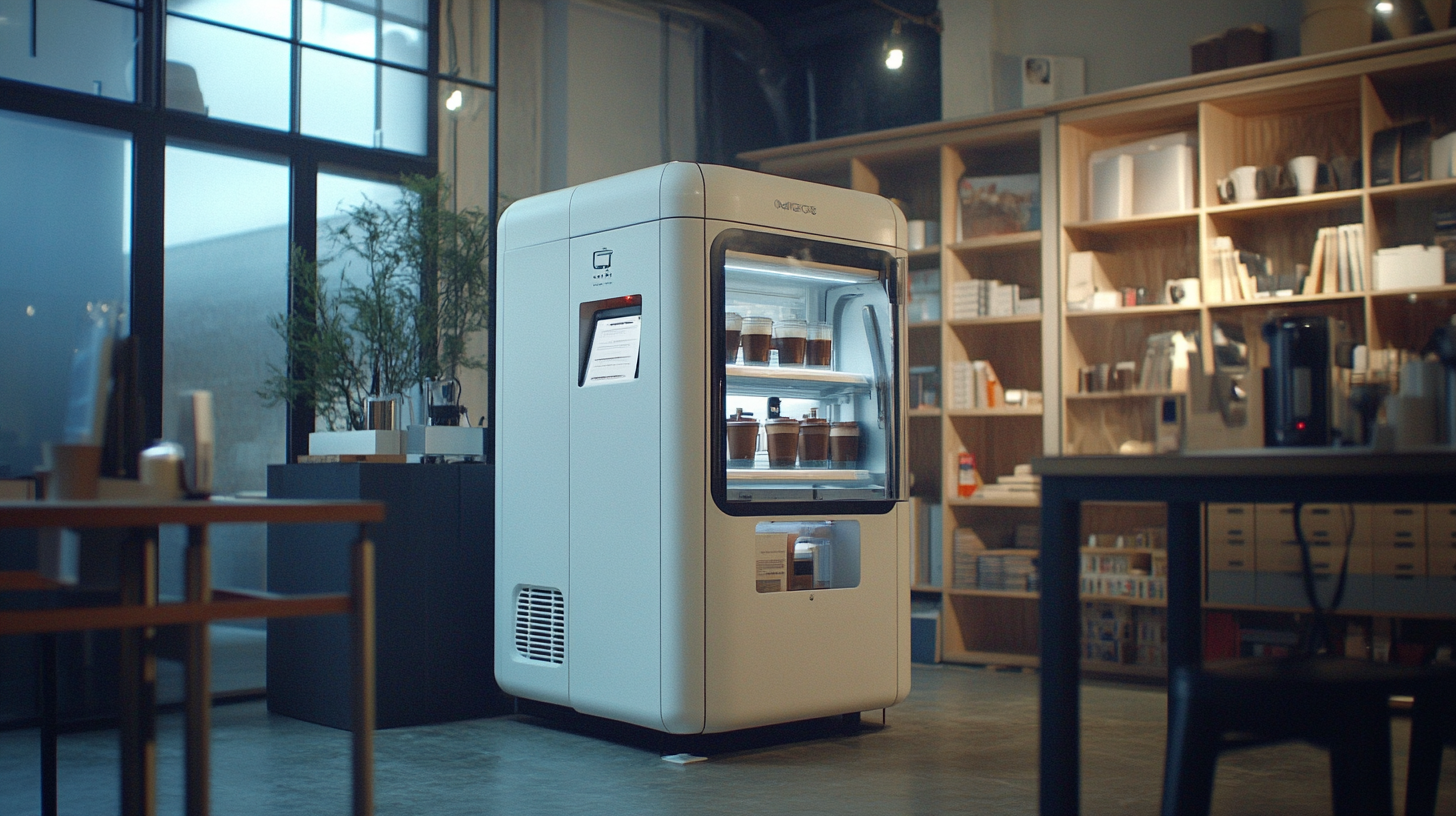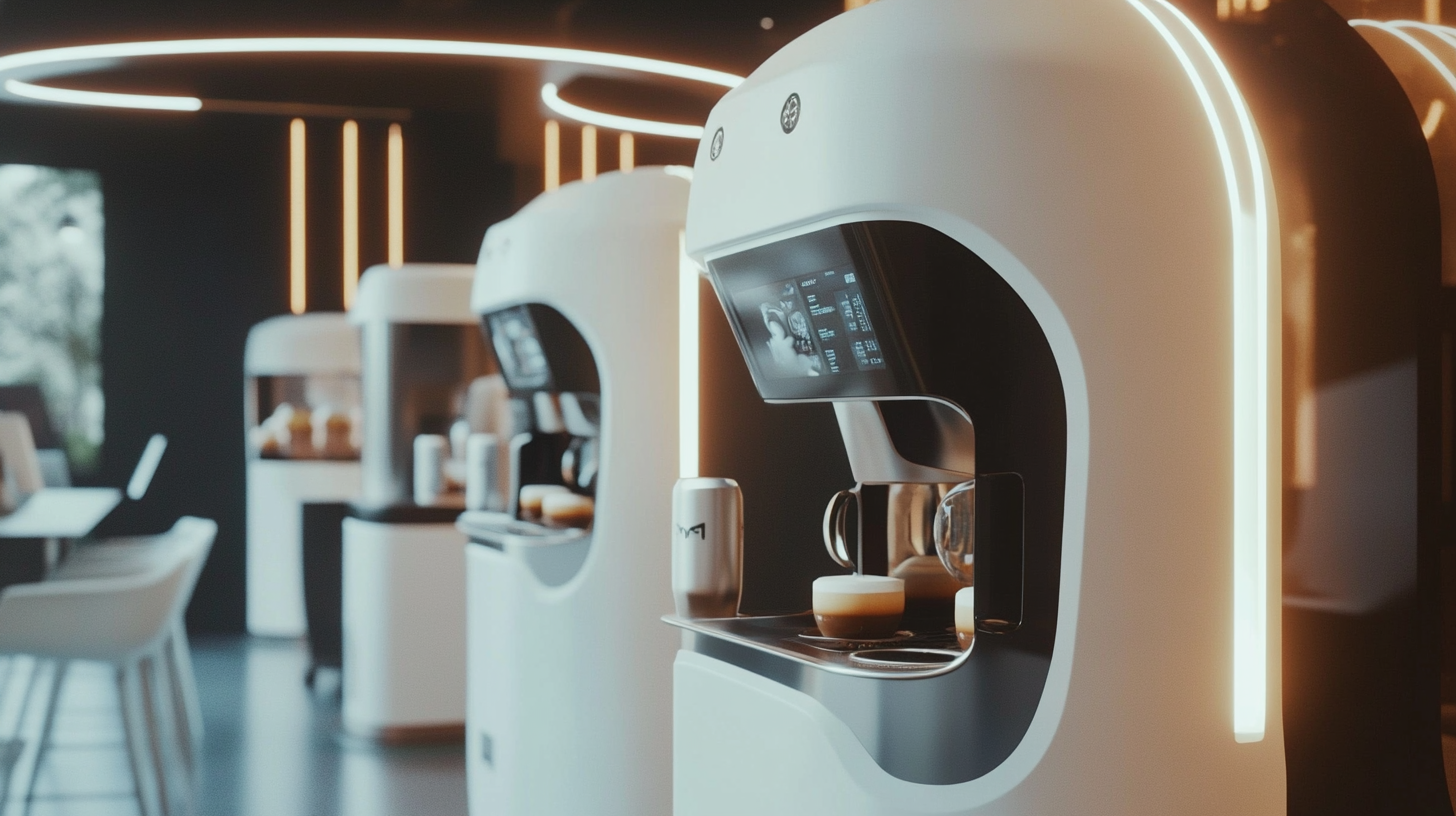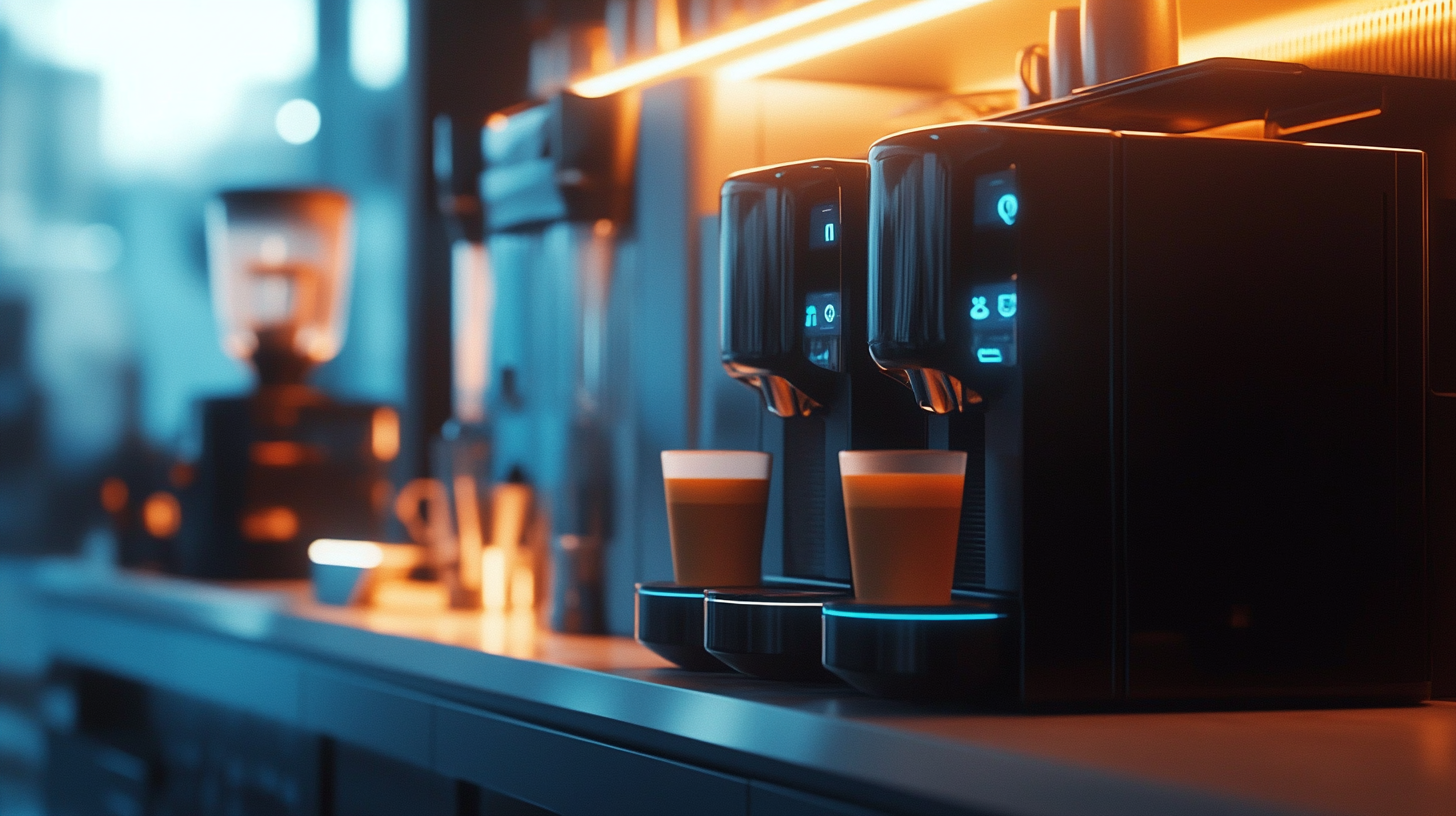Exploring the Global Impact of Robot Coffee Vending Machines in Modern Workspaces
Workplaces are changing with the ceaseless pace of technological advancement, with the emphasis on innovative solutions aimed at maximizing productivity and employee satisfaction. Such an innovation currently gaining traction is the robot coffee vending machine that not only dispenses caffeinated drinks but also represents a shift towards automation of little things in life. The International Coffee Organization posits that by 2024, the value of the global coffee market would reach USD 102.15 billion, which shows increased demand for coffee in work environments. Rise in demand for automated coffee systems thus resonates with what employees indicated in their surveys: "75% of the respondents state that access to quality beverages makes a difference in productivity and job satisfaction".
Robotic coffee vending machines in contemporaneous workplaces are a strategic operation based on efficiency and convenience attributes. According to a study by the National Coffee Association, 79% of American workers drink coffee every day, hence making the case that amazing coffee should always be piped into the office. The vending machines cater not only to employees on the move but also symbolize a rapid adoption of smart technologies in the workplace. In the spirit of enhancing engagement, well-being, and productivity, robot coffee vending machines are fast becoming partners in the task of reimagining the workplace for the better.

The Rise of Robot Coffee Vending Machines in Offices Worldwide
The paradigm of coffee culture in most offices around the world has changed lately, owing to robotic coffee vending machines sprouting in the increased number at the establishments. According to a recent report released by Technavio, the automated coffee machine market is expected to garner above $2-denominations globally, from 2023 to 2027, indicating an uptrend towards convenience and efficiency in workspace refreshment solutions. The automated coffee machines diversify coffee types and apply advanced technology to streamline the brewing action, thus maintaining quality and consistency for each cup. The introduction of robot coffee vending machines has been mostly in tech corporations and co-working spaces, which only go to show how typical "fast" work environments are of needing immediate access to caffeine. Over sixty percent of employees believe that easily accessible coffee improves workplace morale and productivity, according to a study by Statista. For companies, this would reduce downtime of coffee breaks, thus better optimizing working hours in increasing overall employee efficiency. In addition, these machines are smart and allow the beverage to be customized via mobile apps or touch screens, thus meeting modern consumer amenities. Robot coffee vending machines are changing workplace changing most office culture around the world. A report from Technavio reveals that the market for automated coffee machines would grow by over $2 between 2023 and 2027, portentous of a trend towards easier and efficient workspace refreshment solutions. Such machines could serve lots of coffee types but would use advanced technology to streamline the brewing process, thus ensuring quality and consistency from every cup. As companies are currently adapting to the evolving demands of the modern worker, the emergence of robot coffee vending machines is an affirmation of the sweeping change toward automation and convenience in the workplace. It was convergence that a reliable technology brings to the integration of everyday activity to worker satisfaction, thereby making the workspace an ingenious and dynamic environment in which to perform work, indeed. That would expand further because workplaces are possibly balancing efficiency with the comfort and personalization that modern employees expect.

Transforming Employee Experience Through Automated Coffee Solutions
Such constructions include currently employing robots in homes as well as offices for vending coffee. The employee experience is primarily being transformed so that these automated coffee solutions can become vending machines. These machines will provide staff with very quick caffeine fixes, while also providing an atmosphere within the workplace setting that encourages the culture of convenience and efficiency. Nurturing employee happiness by such little yet meaningful things as high-quality coffee has previously been recognized these days to increase employee productivity and morale.
Automation doesn't differ from how other industries have started introducing Financial Spas by boutique financial institutions. It shows how those things can be incorporated into today's modern workplaces to improve client interaction and satisfaction by putting up a really nice environment coupled with excellent service. A company dedicating itself to the improvement of the employee experience would see a very clear statement about offering quality beverage choices that can be customized to suit individual preferences by installing robot coffee vending machines.
In addition, including automation as part of workplace amenities does reflect broader technology trends such as using blockchains or artificial intelligence to create new espaces in business development and operational efficiency. These advancements have also encompassed a greater employee base and its inclusive improvement. With such investments in their contemporary coffee solutions, companies will not be brewing coffee; they will be creating a more sociable and productive workplace.

Technology Meets Convenience: The Features of Robot Coffee Machines
The coffee vending machine of today's robotic workplace has become a new trend, one that simply combines a technology with convenience in bringing the coffee consumption experience to thousands of busy professionals in the office. Quite simply, these machines do not just serve efficiency; their goal is to satisfy the changing needs of modern-day business environments. For example, advanced models can prepare a cup of coffee in under 50 seconds, allowing employees to enjoy a quick refresher without any significant downtime. For this reason, this is interesting in busy cities because it saves a minute.
Market analysis informs that the segment robot coffee shop sector amounted to $0.8 billion in 2022 and is projected grow to $3.5 billion by 2030, marking a compound annual growth rate (CAGR) of 20.4% from 2024 to 2030. This phenomenal growth is attributed to the ongoing integration of artificial intelligence and automation that are emerging into the food and beverage industry, facilitating seamless service and delivery of high-quality products. It shows the trend into advanced, fully automated machines that are expected to ultimately eliminate the need for human labor while remaining friendly to customers.
These robotic solutions also indicate a growing trend toward urban digitalization, focused on delivering speed and convenience. As urban areas continue to get busier, with hours of work stretching beyond normal limits, it is anticipated that the demand for quick service alternatives like robot coffee machines will continue to surge. Indeed, the technology behind the coffee vending machine has been featured in several exhibitions and events to indicate how it responds to changing market conditions and holds a position in the workplace of the future and coffee culture.

Economic and Environmental Benefits of Robotic Coffee Vendors
Indeed, the embedding of robotic coffee vendors into the modern workspace has become a game-changer in several areas, more so in the economic and environmental benefits. Figures recently released by the National Coffee Association show that over 70% of adult Americans report drinking coffee every day, pointing toward a near-demand for a functional coffee service in offices. With robotic coffee vending machines, a company is able to reduce its labor cost drastically. "Labor costs range from around 25-40% of operational costs for food service facilities," says a study of Deloitte. The use of an automated coffee service can greatly reduce the employee salary and optimize the resources, thus allocating the employees to most strategic processes.
These robotic coffee vendors also serve environmental considerations, as they are designed to be sustainable. The World Economic Forum states that old-fashioned coffee brewing produces huge amounts of waste, especially in single-use cups and packaging. Robotic coffee machines most of the time use eco-friendly materials and, in certain cases, also push the users toward reusing cups. Ellen MacArthur Foundation's research shows that making the shift to a circular economy in the food sector can lead to a 45% reduction in greenhouse gas emissions. Hence, by switching from the conventional coffee stations to these robotic vendors, companies are actually lowering their carbon footprint and appealing to those employees who care about the environment.
Besides, the efficiency of the robotic coffee machine is an important contributor to resource management. An inventory management system that refills supplies as required reduces wastage. According to Global Coffee Platform, effective inventory management can reduce costs by at least 15% for companies in food and beverage sector. Robotic coffee vendors not only bring value in cost savings and reduced environmental impact but also help transform the workplace into a preferred destination that is sustainable and economically viable.
Cultural Shifts: How Robot Coffee Machines Influence Workplace Dynamics
Indeed, the advent of a new era in the modernization of workplace environments where robot coffee vending machines characterize them has transformed cultures pretty drastically. Cited in an International Coffee Organization report, 65% of coffee drinkers feel coffee breaks cause them to be more productive in their enhances informal interactions with colleagues. Such facilities are also likely to be systems having user interfaces and customized beverage options that make independent breaks easy and pull employees loose from their desks in order to flexibly interact with one another.
Robotic coffee stations also add an air of innovation and modernity to organizations. According to a survey report by the National Office Coffee Association, 42% of employees would have a preference for companies that deploy advanced technology, considering them more progressive and forward-thinking. This way, employees' morale is improved as such a setup also promotes a culture characterized by collaboration, where workers are much more likely to congregate around those machines, sharing ideas and building bonds over their favorite brews.
By this introduction, automated machines foment a new kind of relationship between co-workers and sustain a challenge against traditions based on the society of collegiality. Access barriers such as long queues and needing a barista dismantle fixations on traditional coffee making yet bringing about a scaling toward a more egalitarian environment in the workplace. Informal social interactions in workplaces enhance job morale and reduce turnover, according to an article published in the Journal of Occupational Health Psychology. It just shows how we need a complete rethink in terms of how we provide coffee at work.
